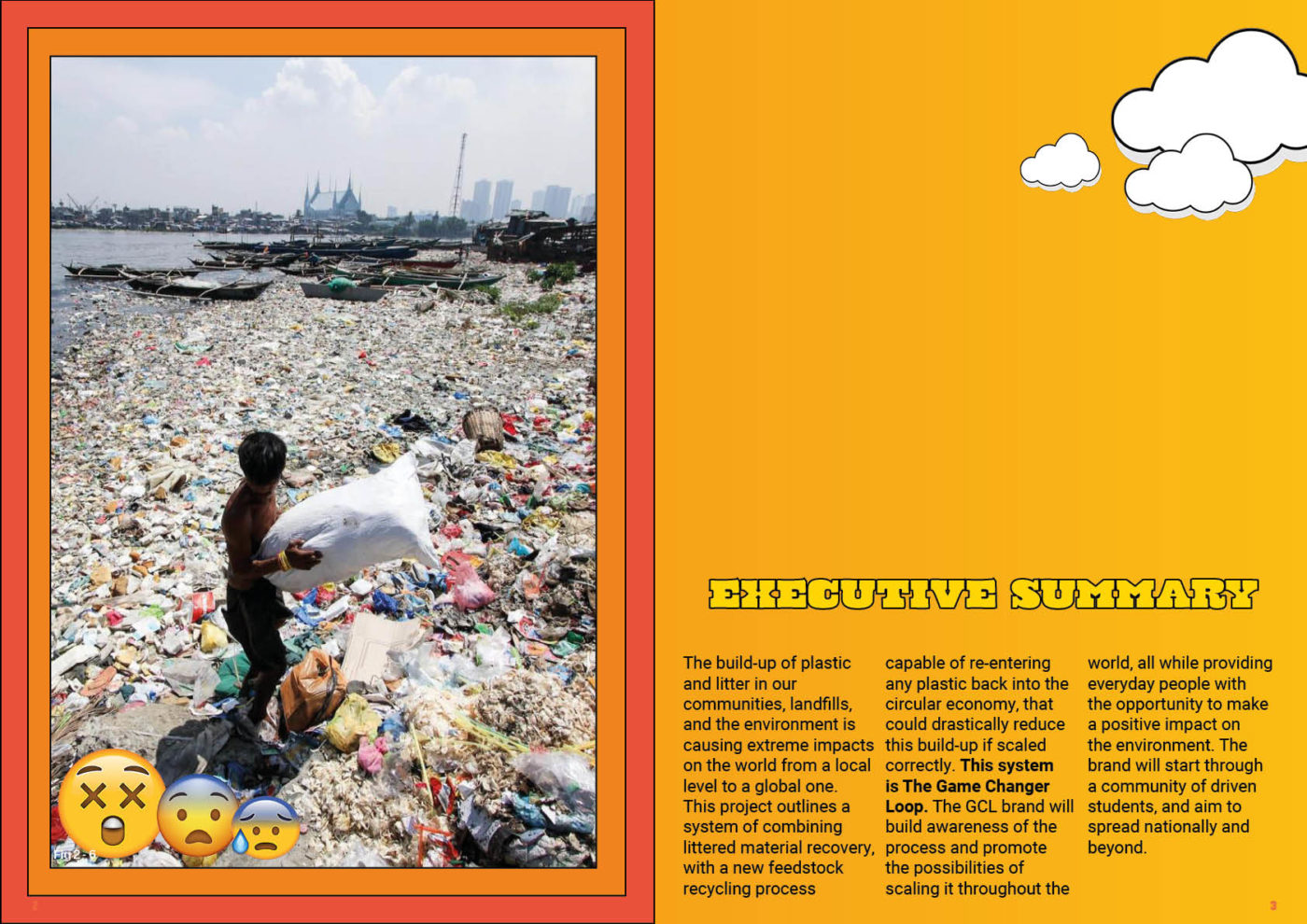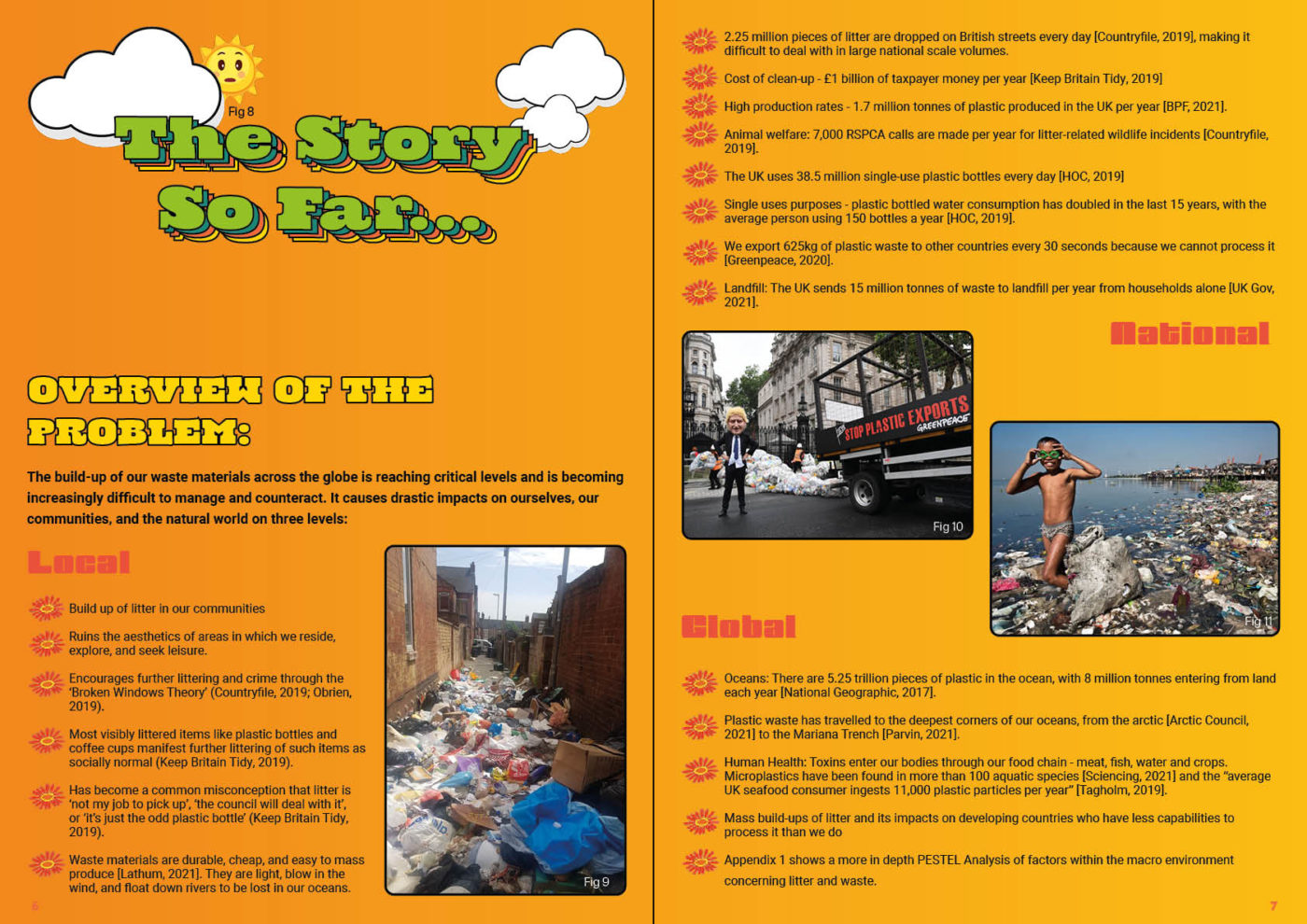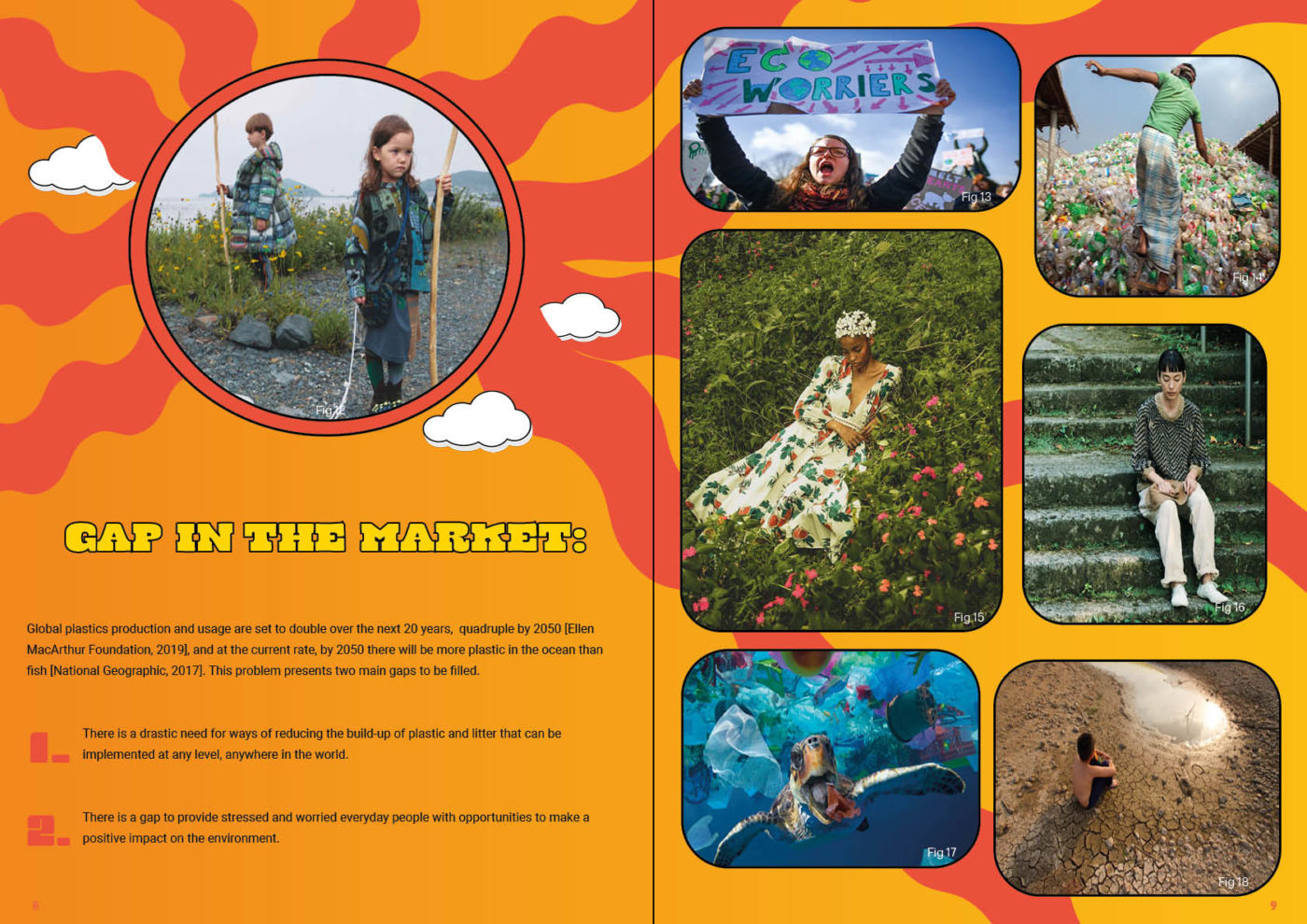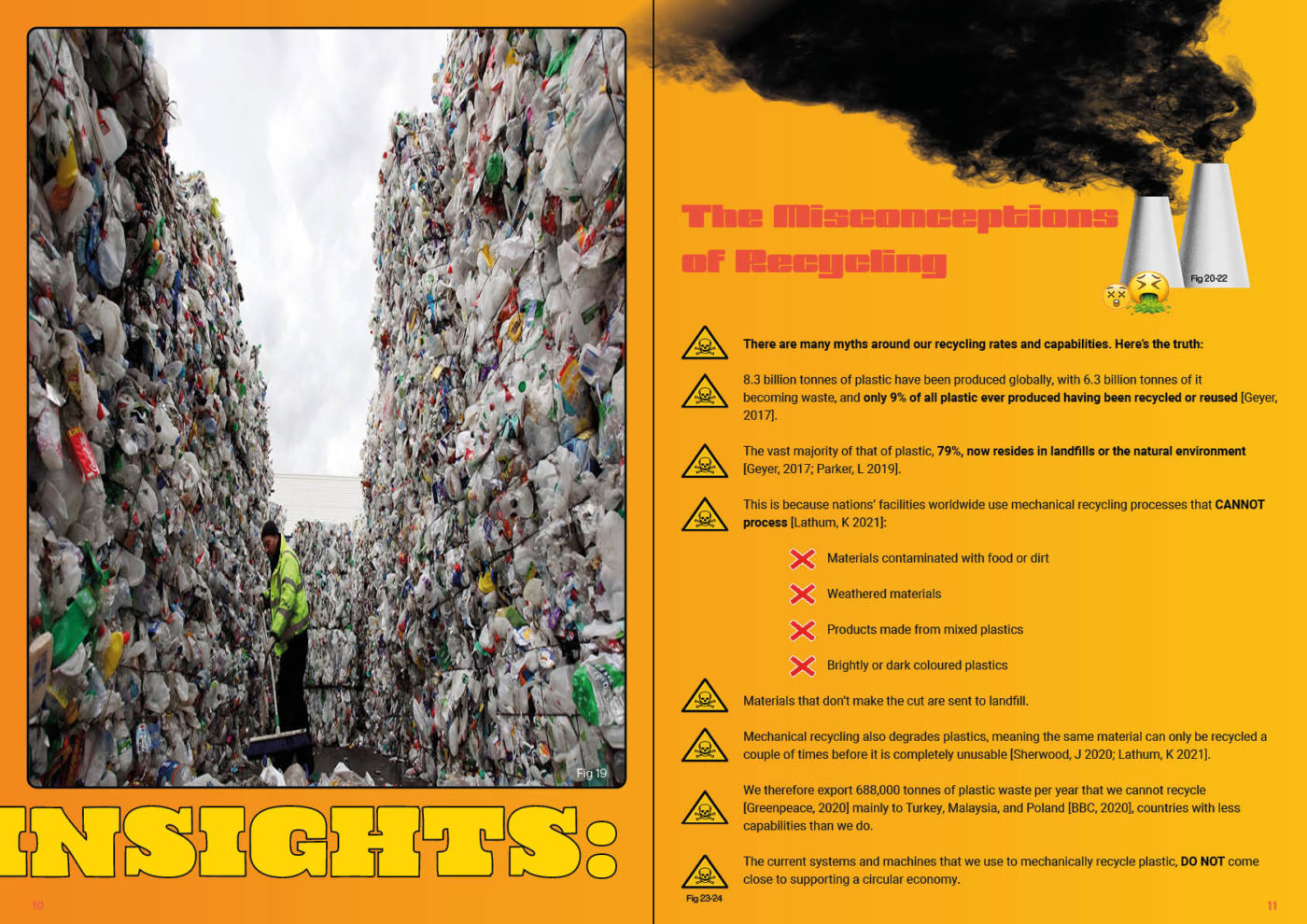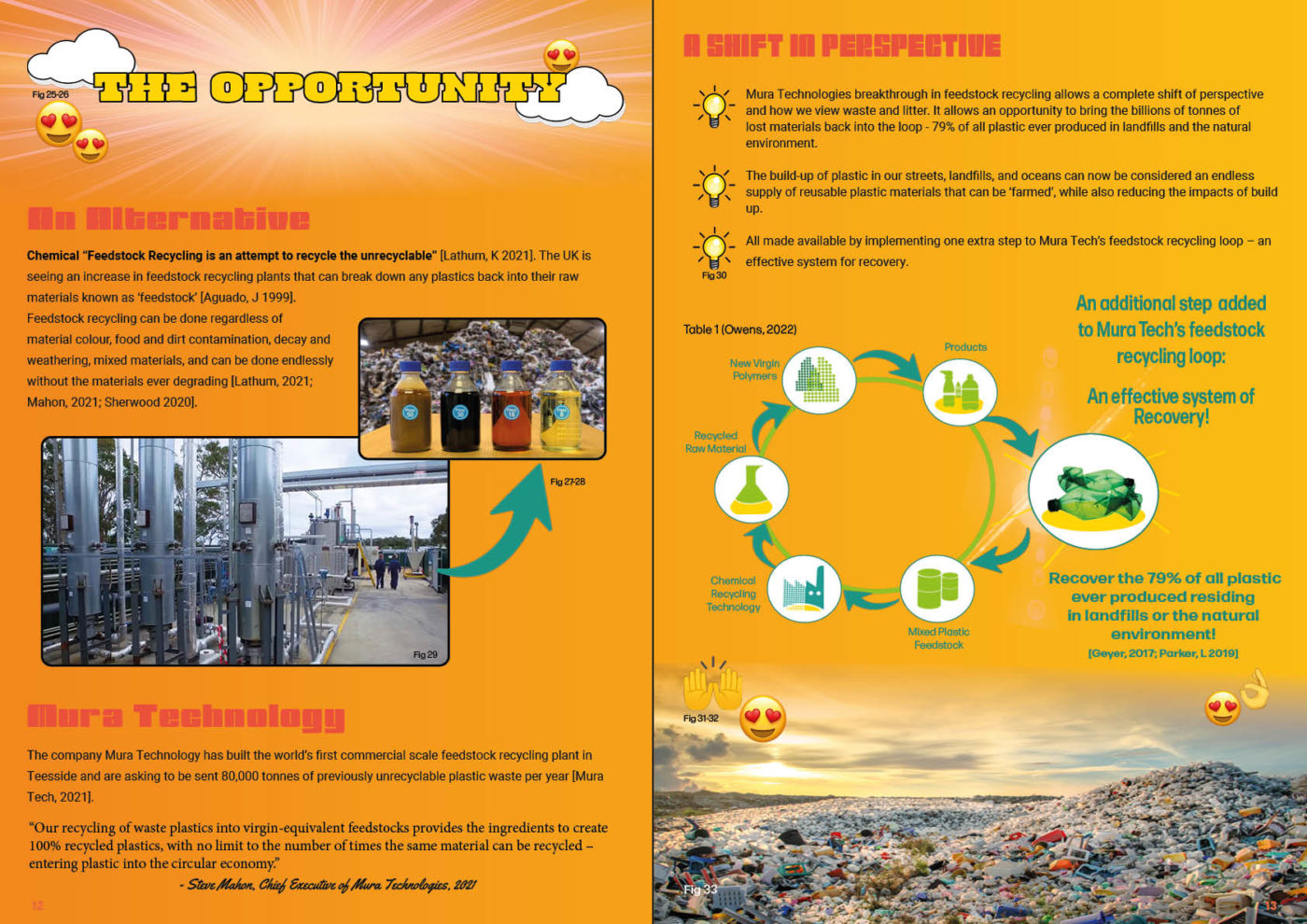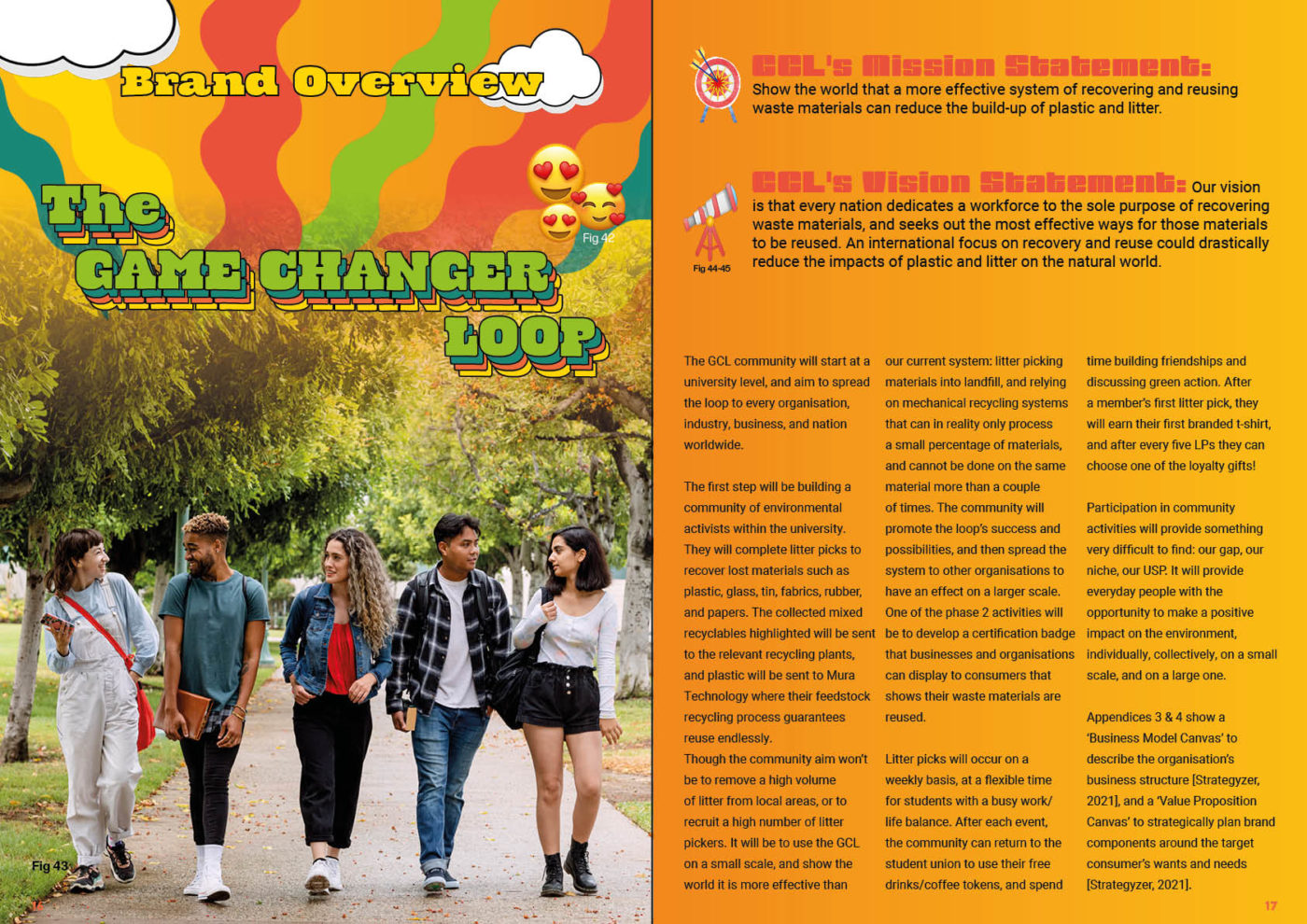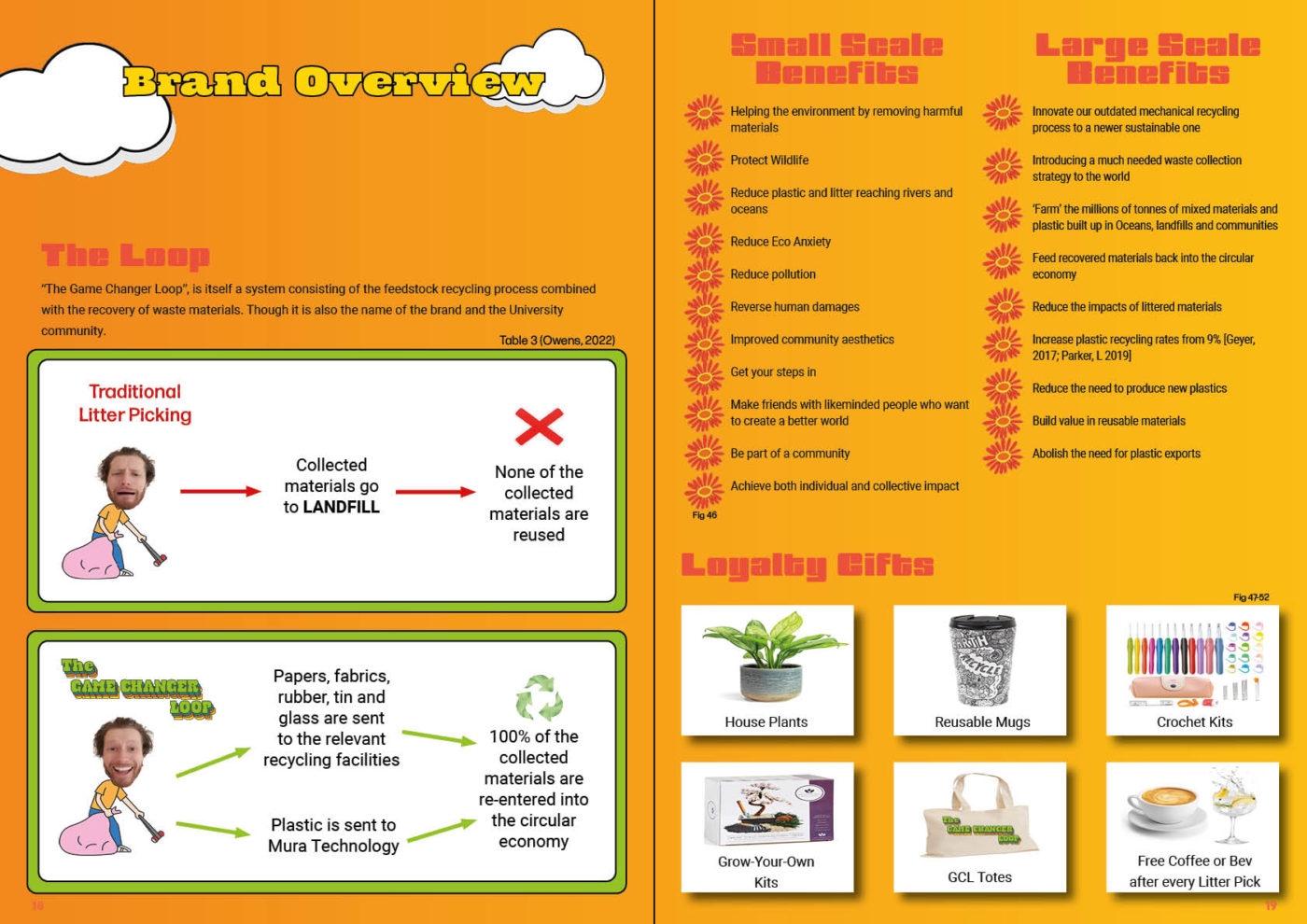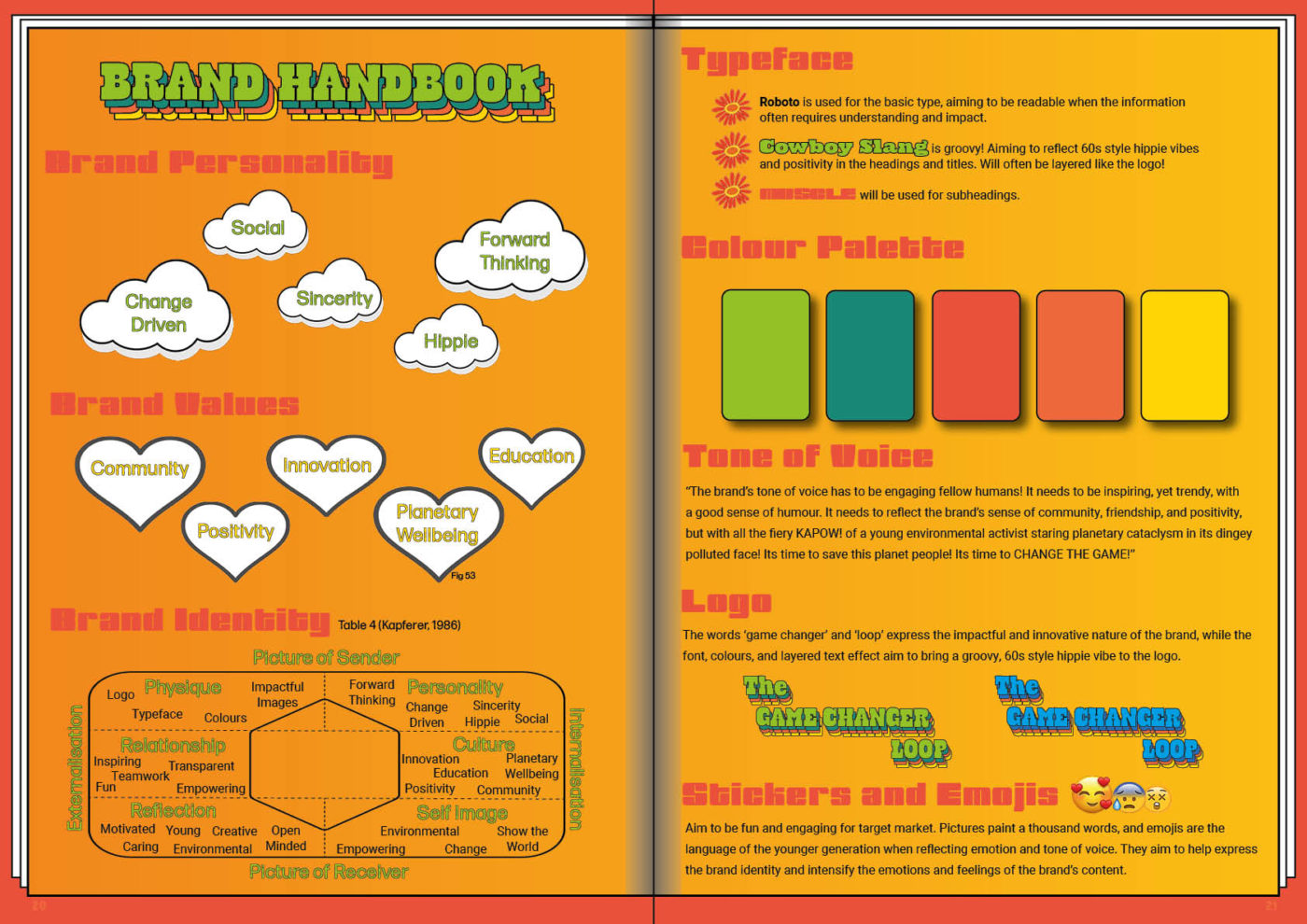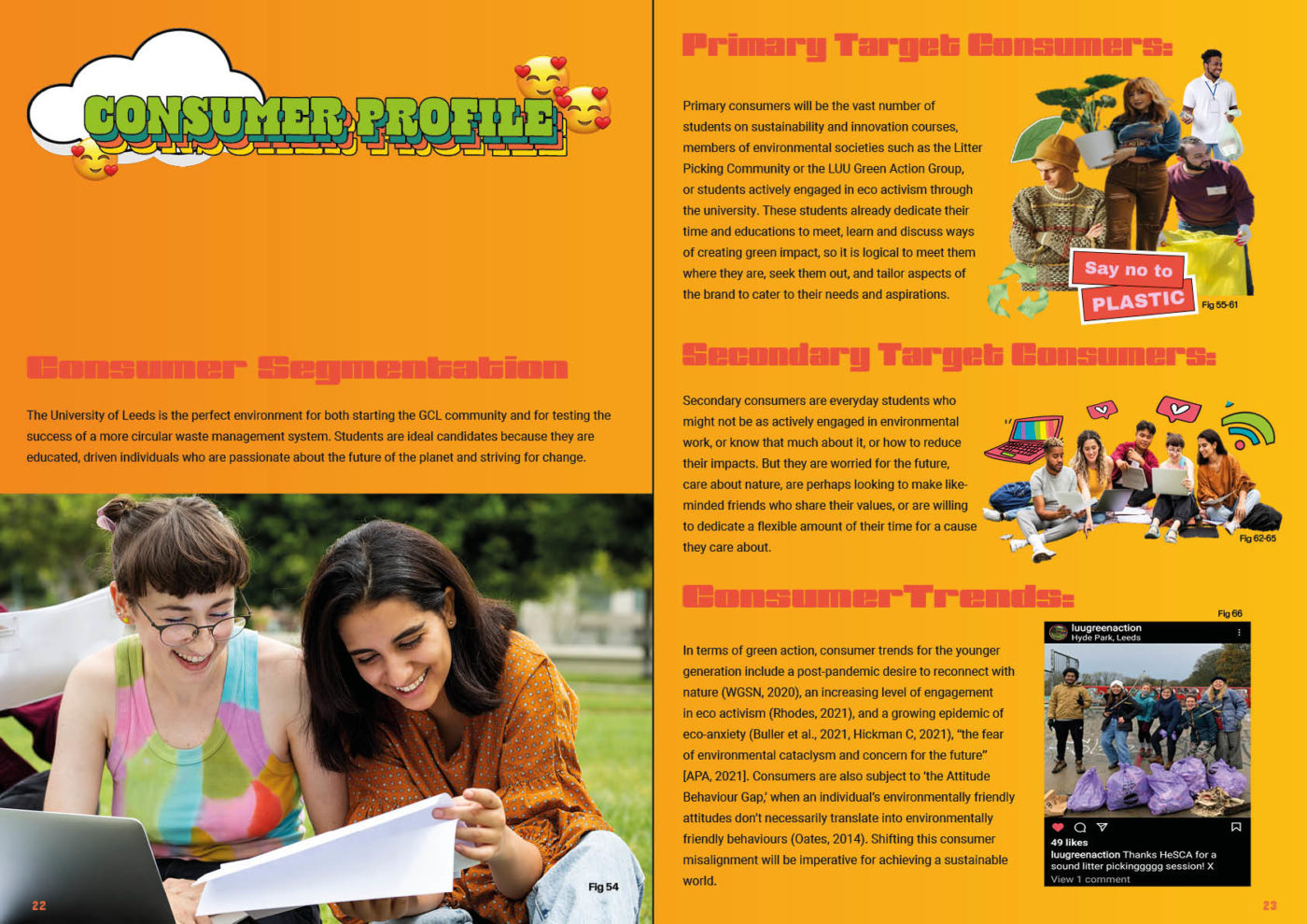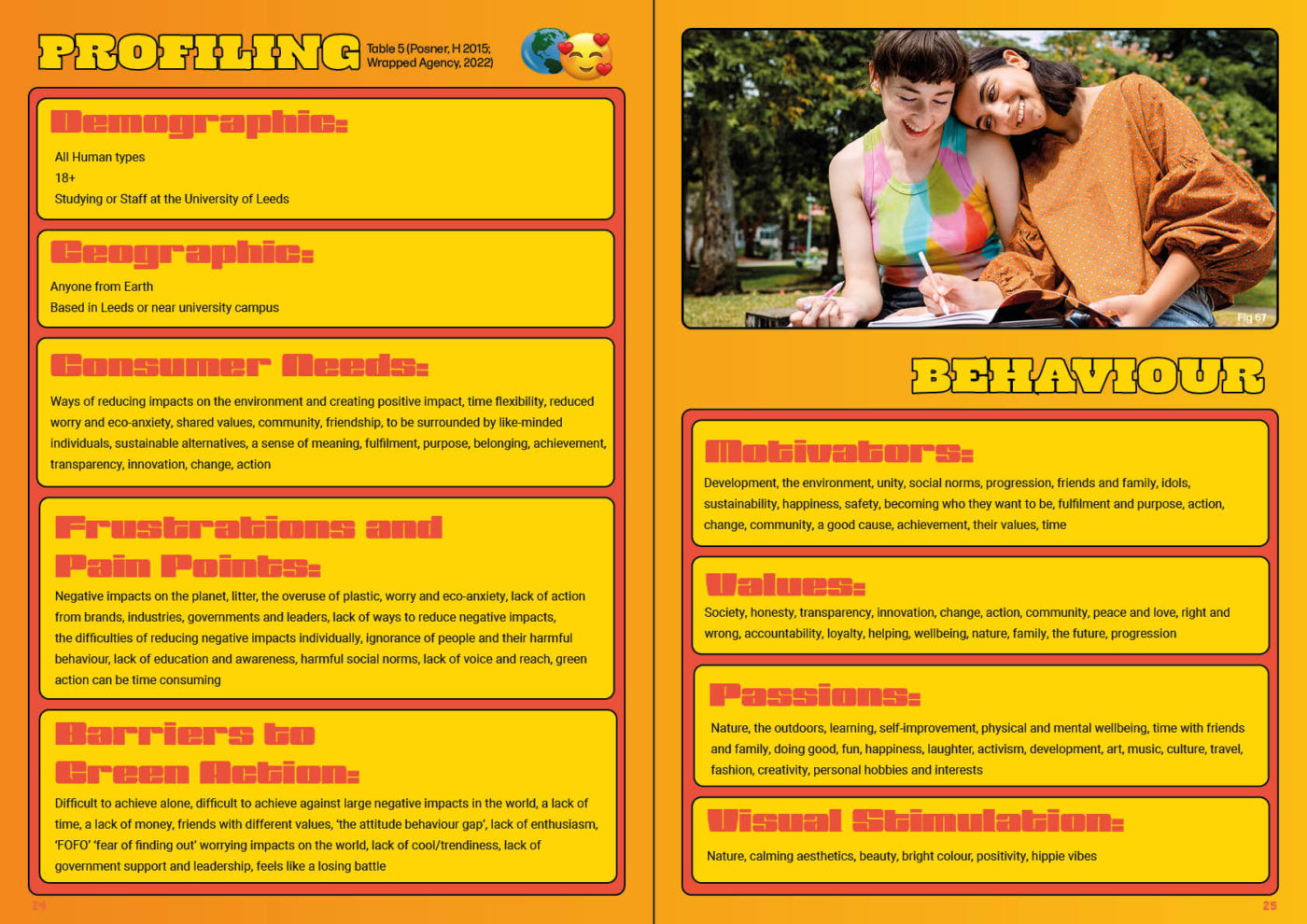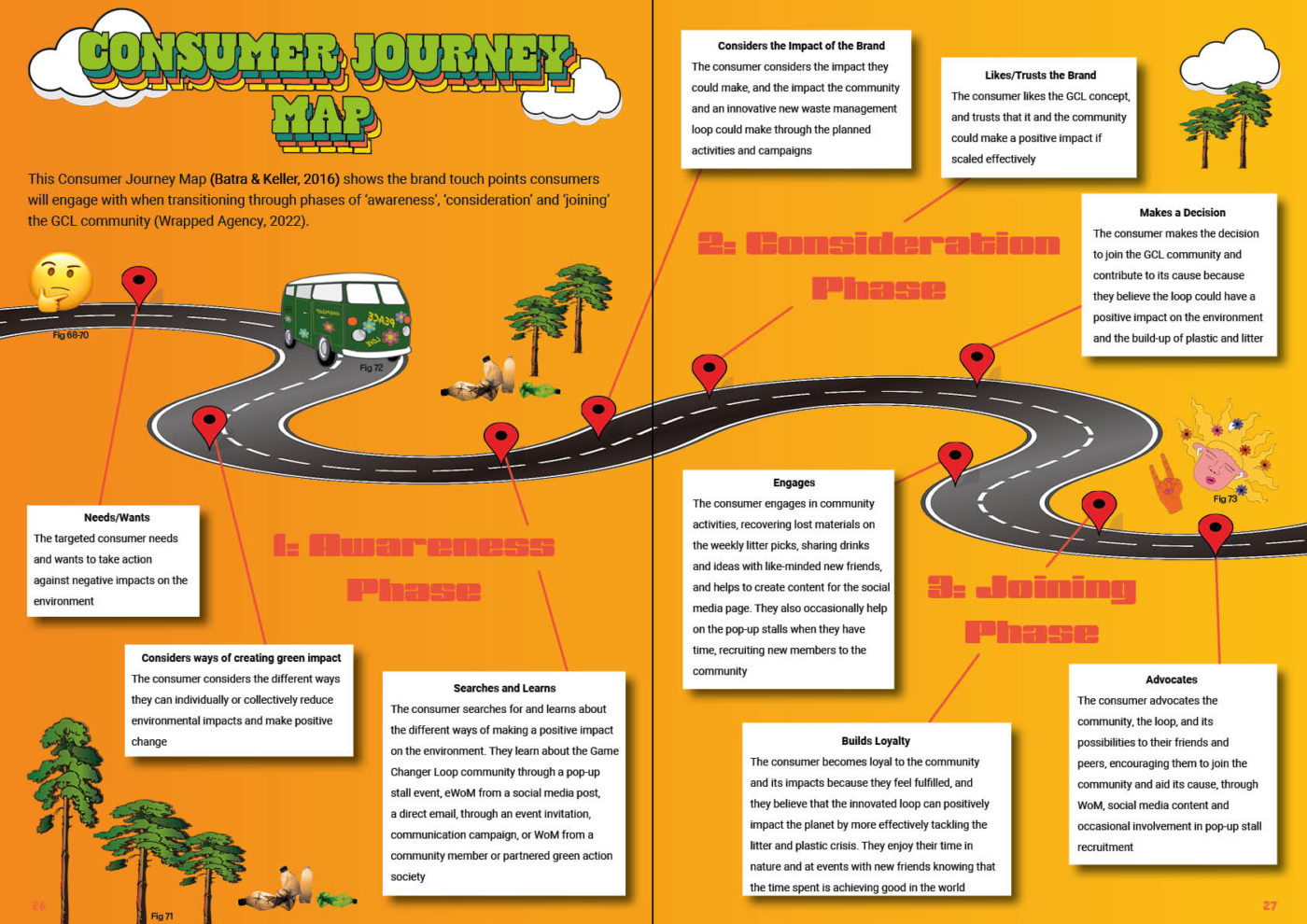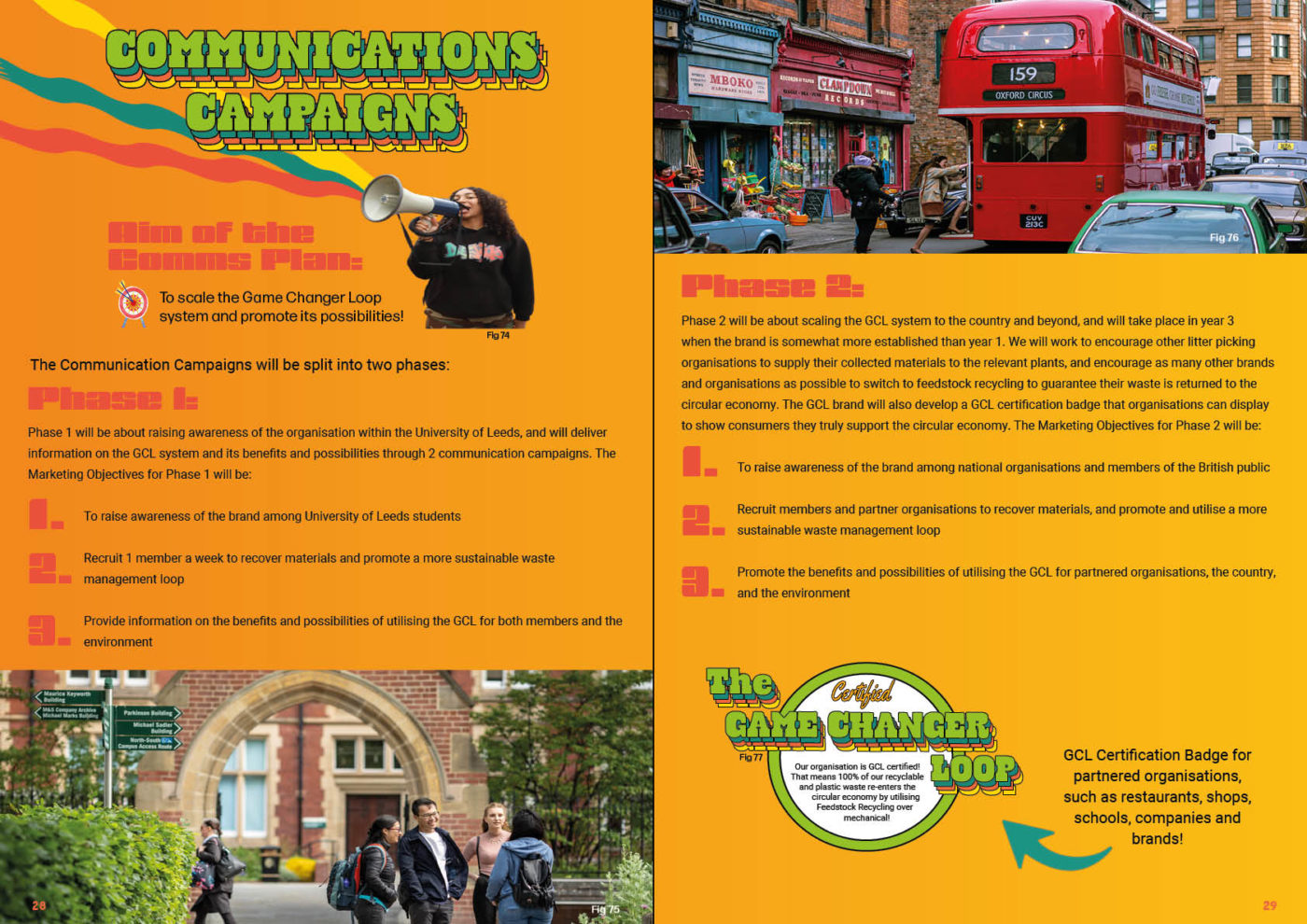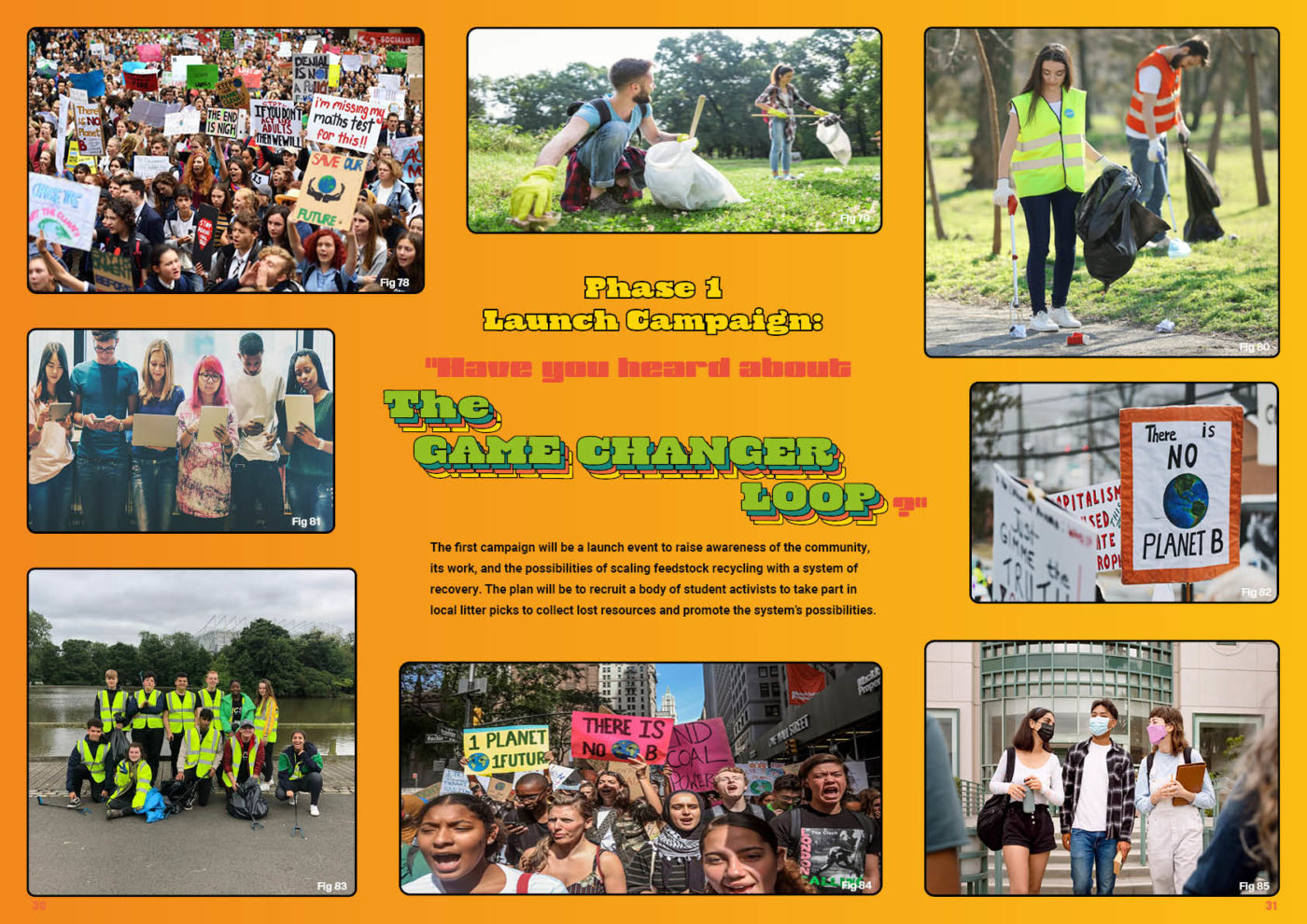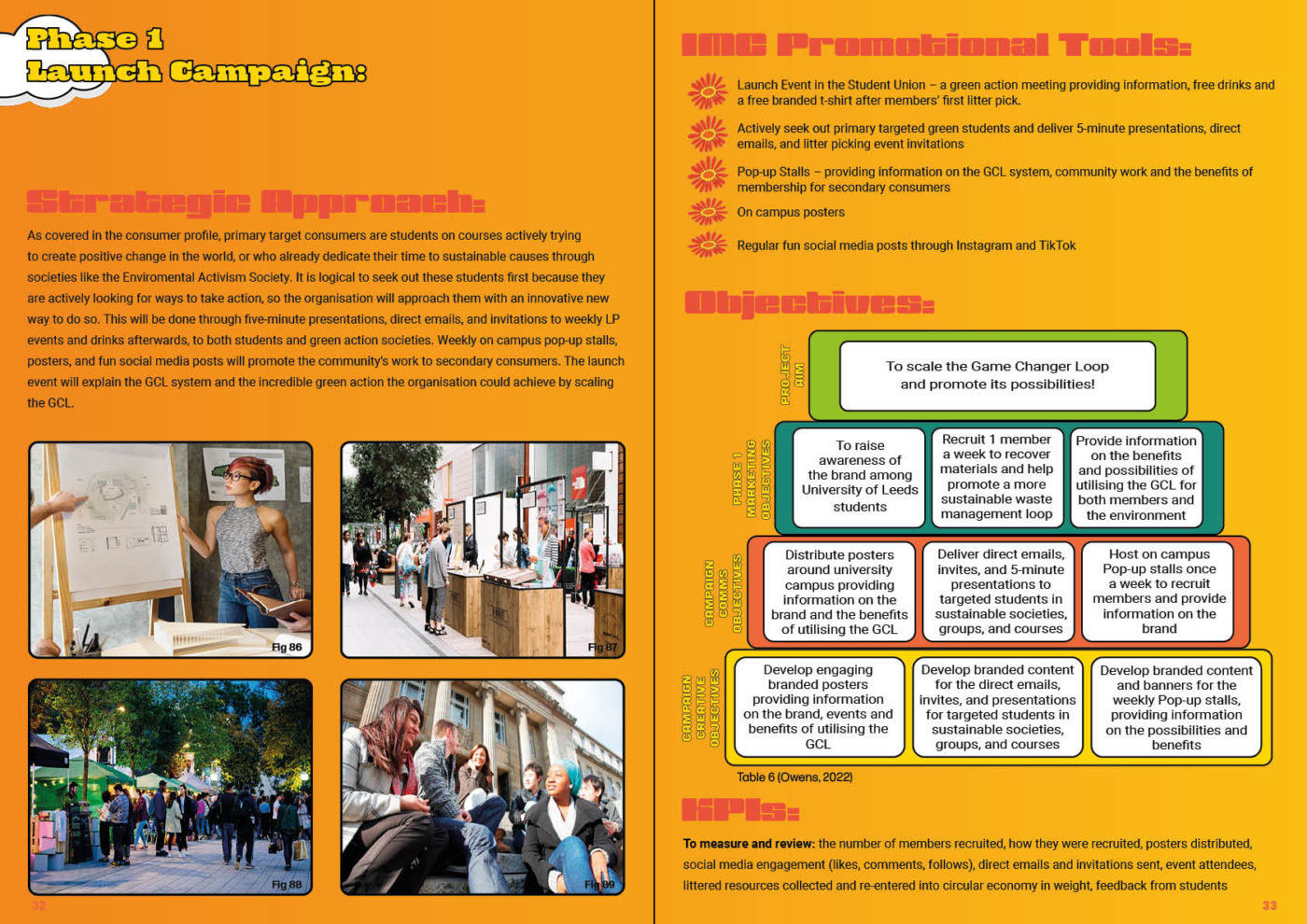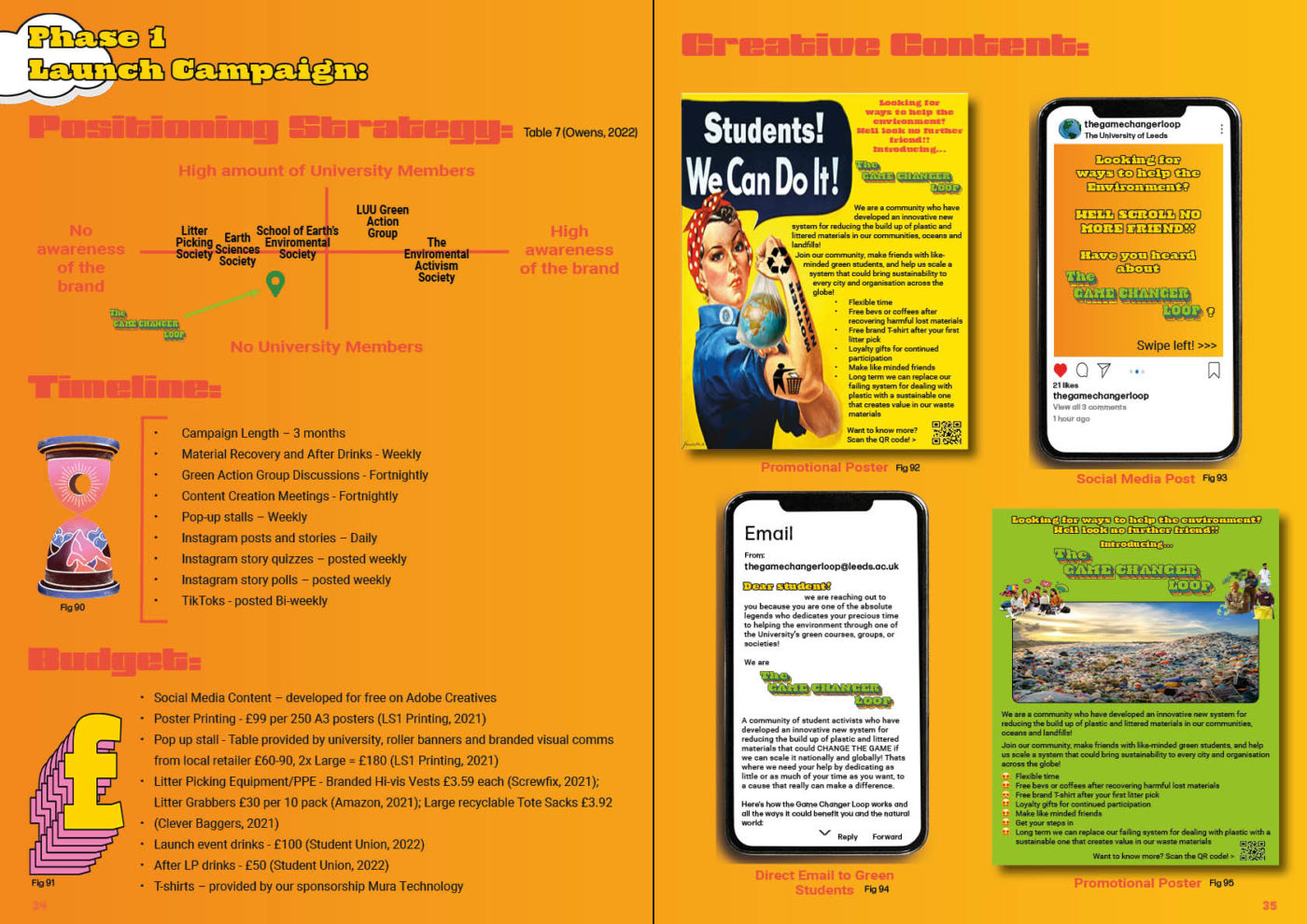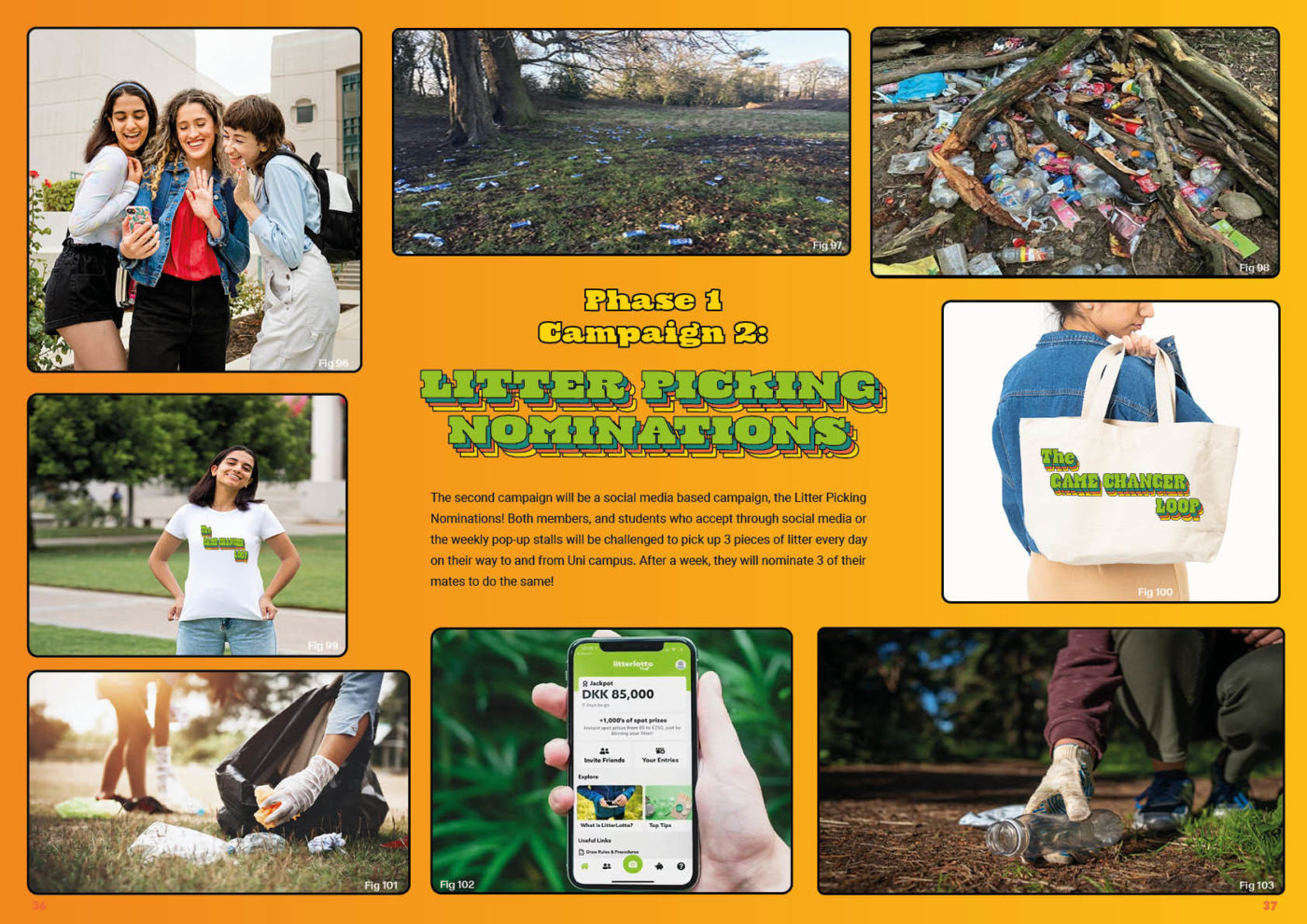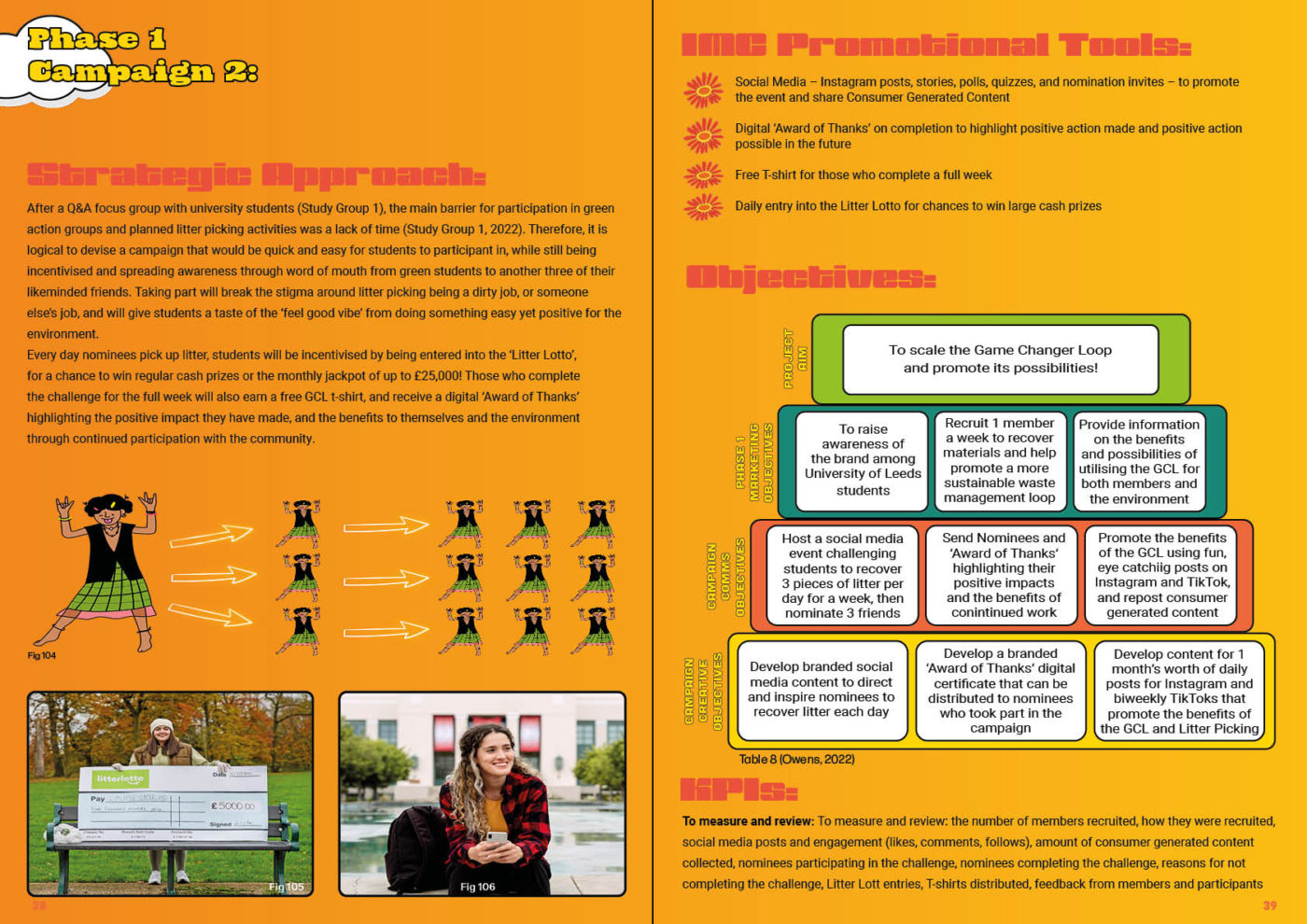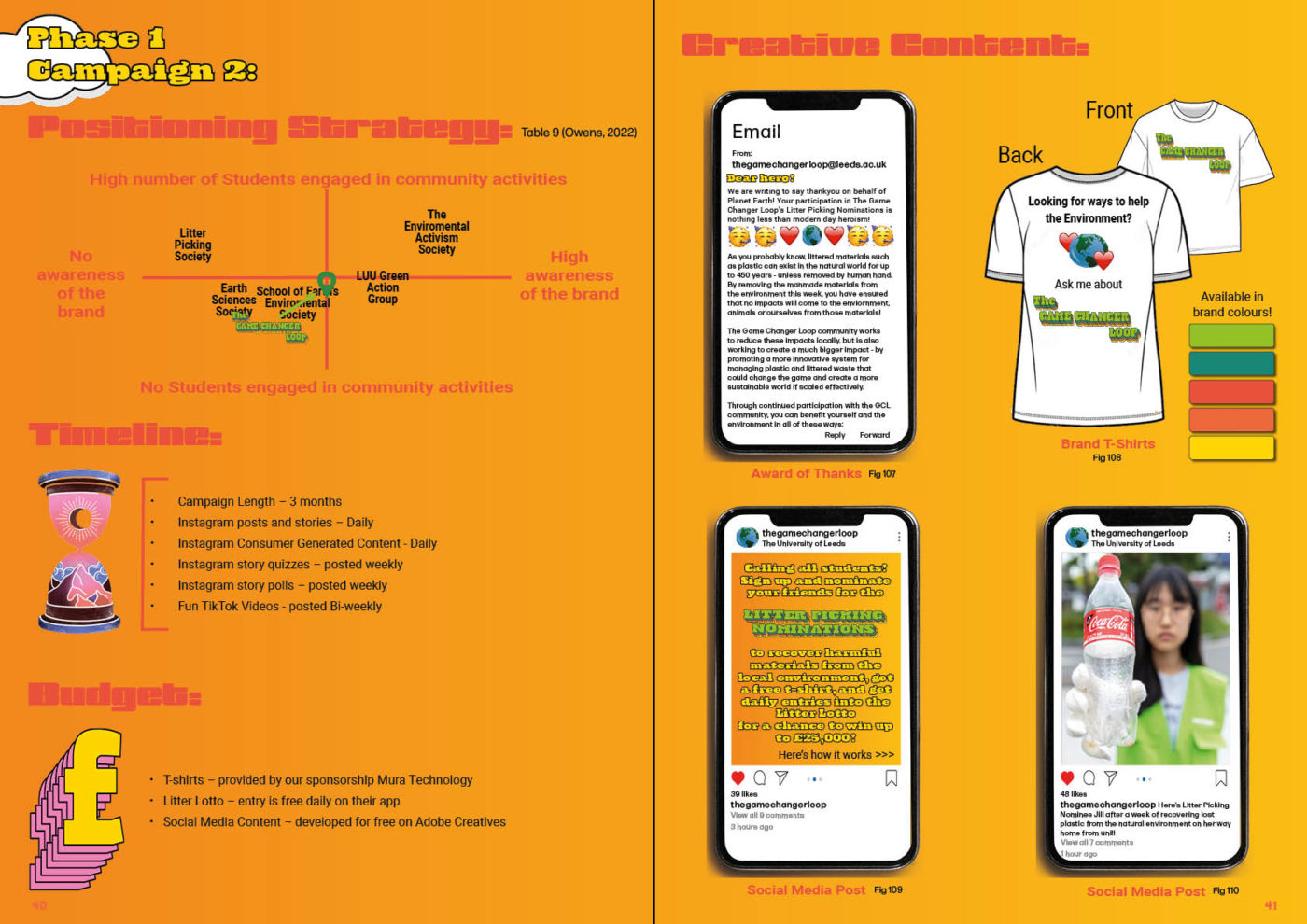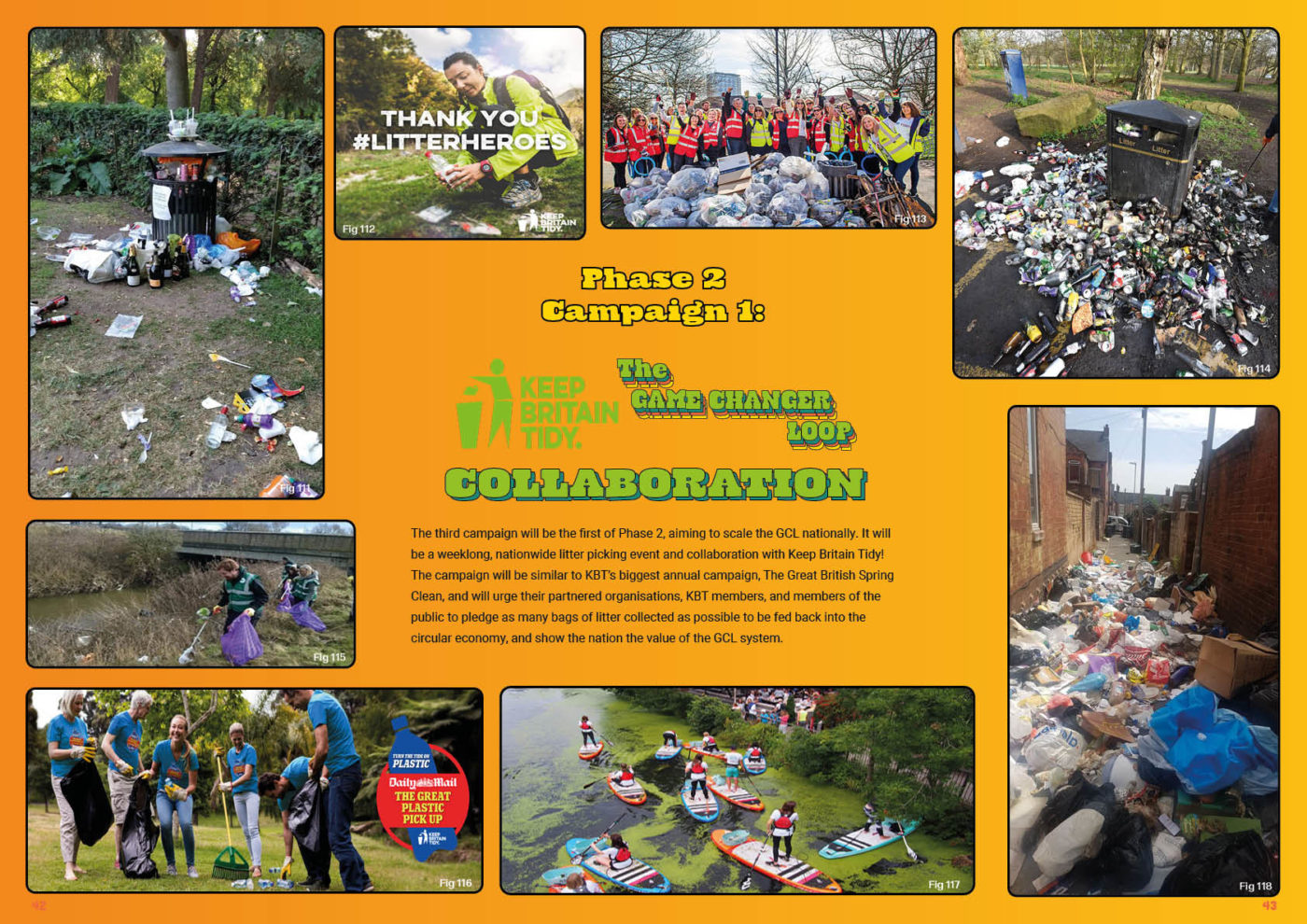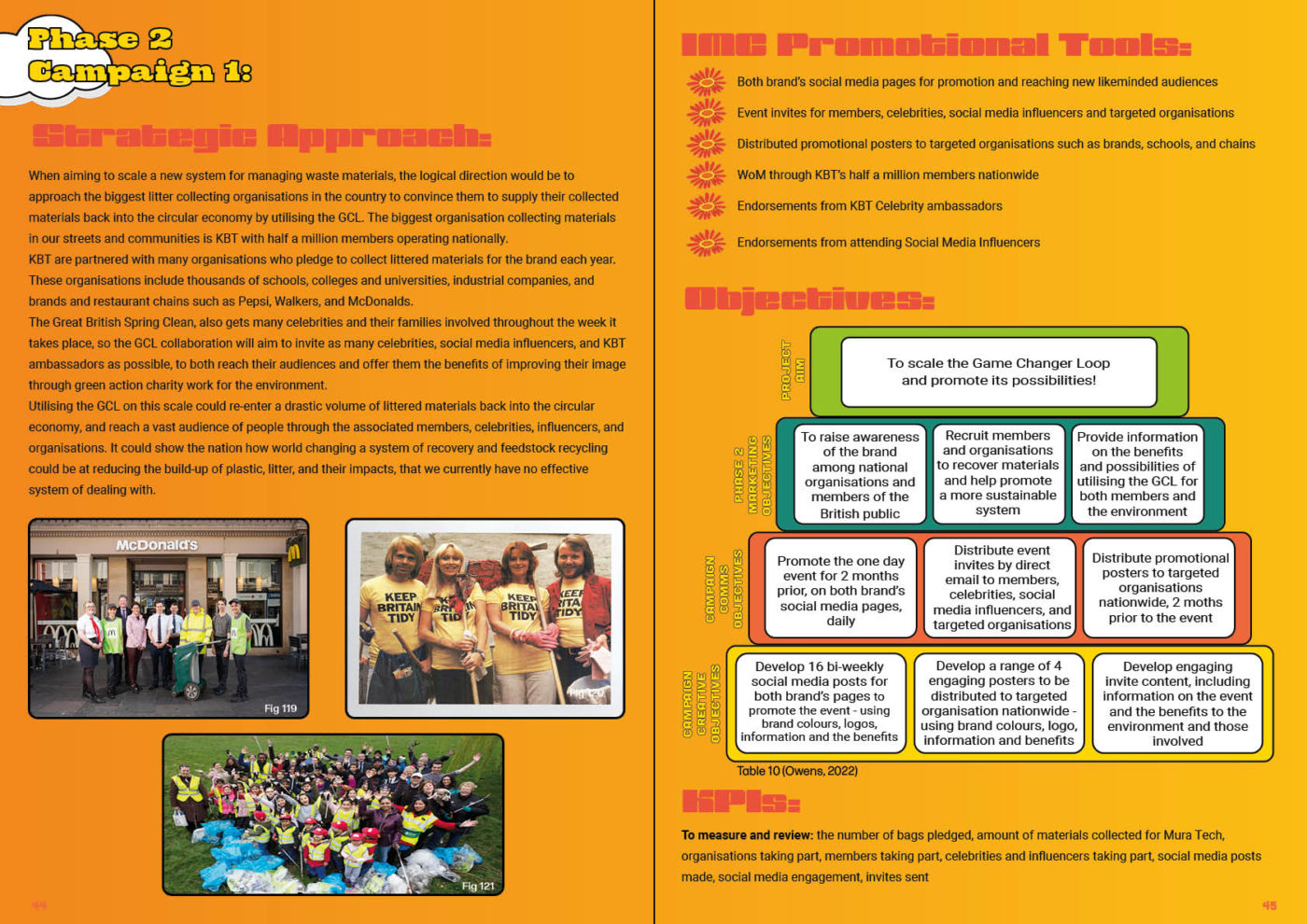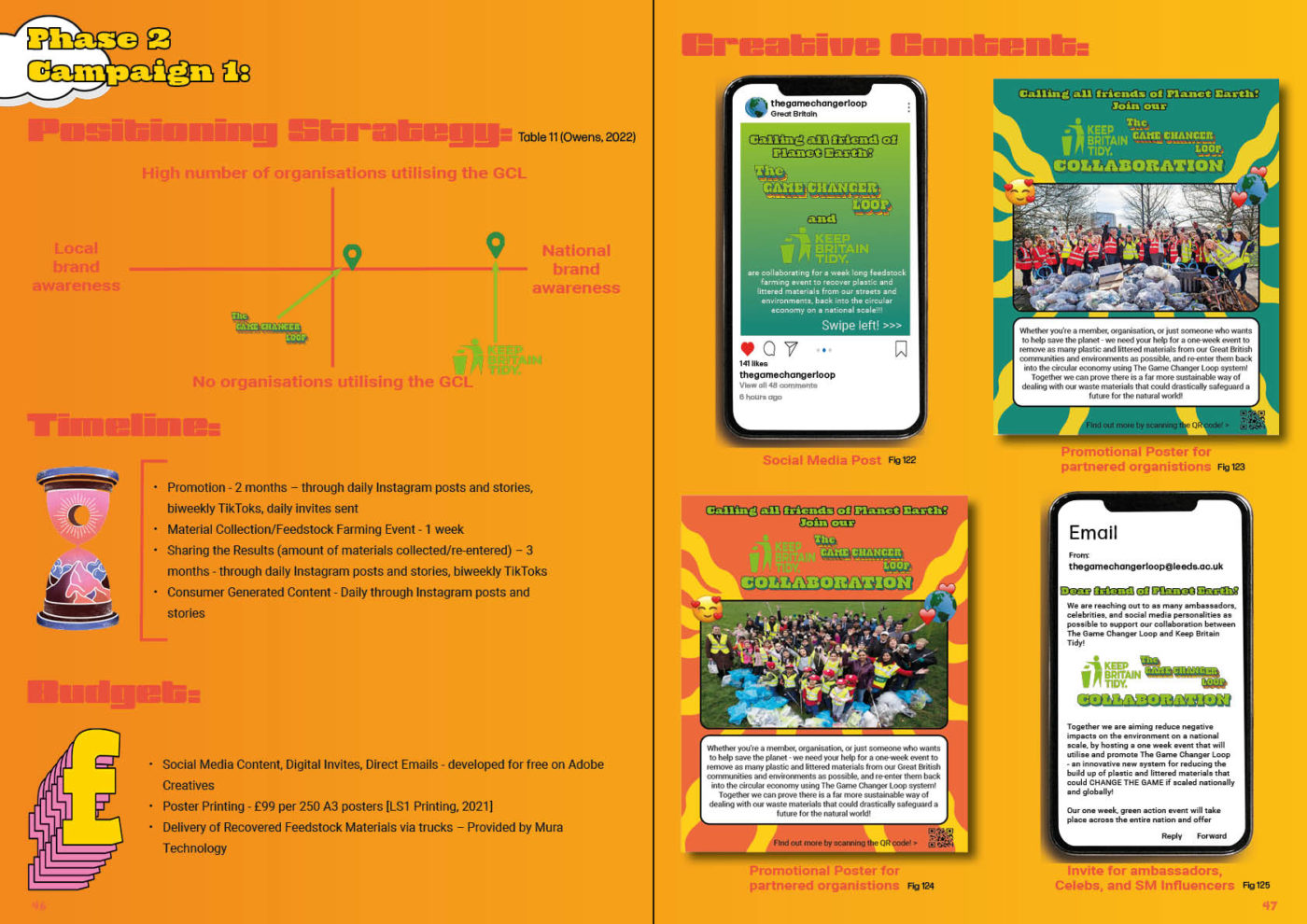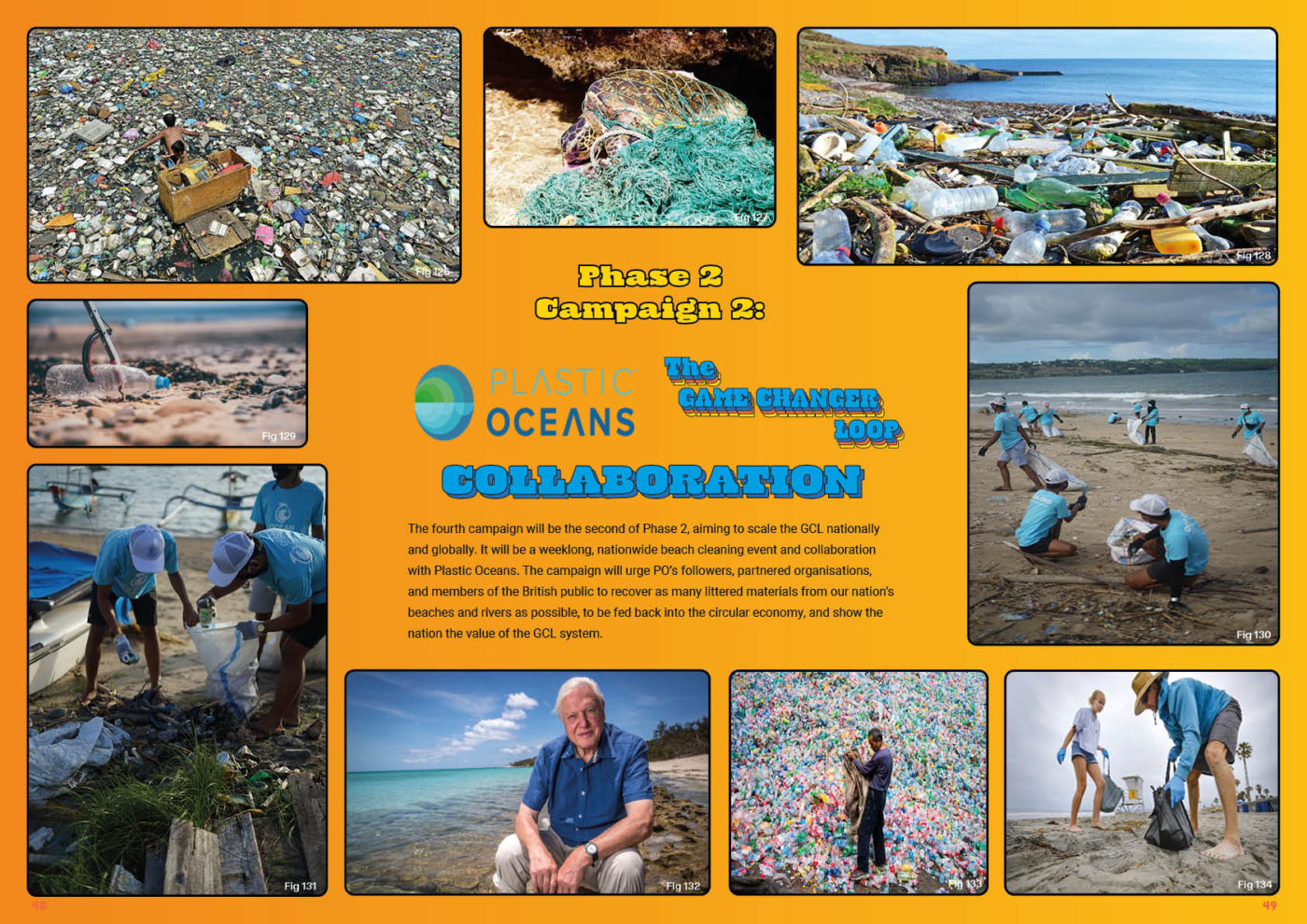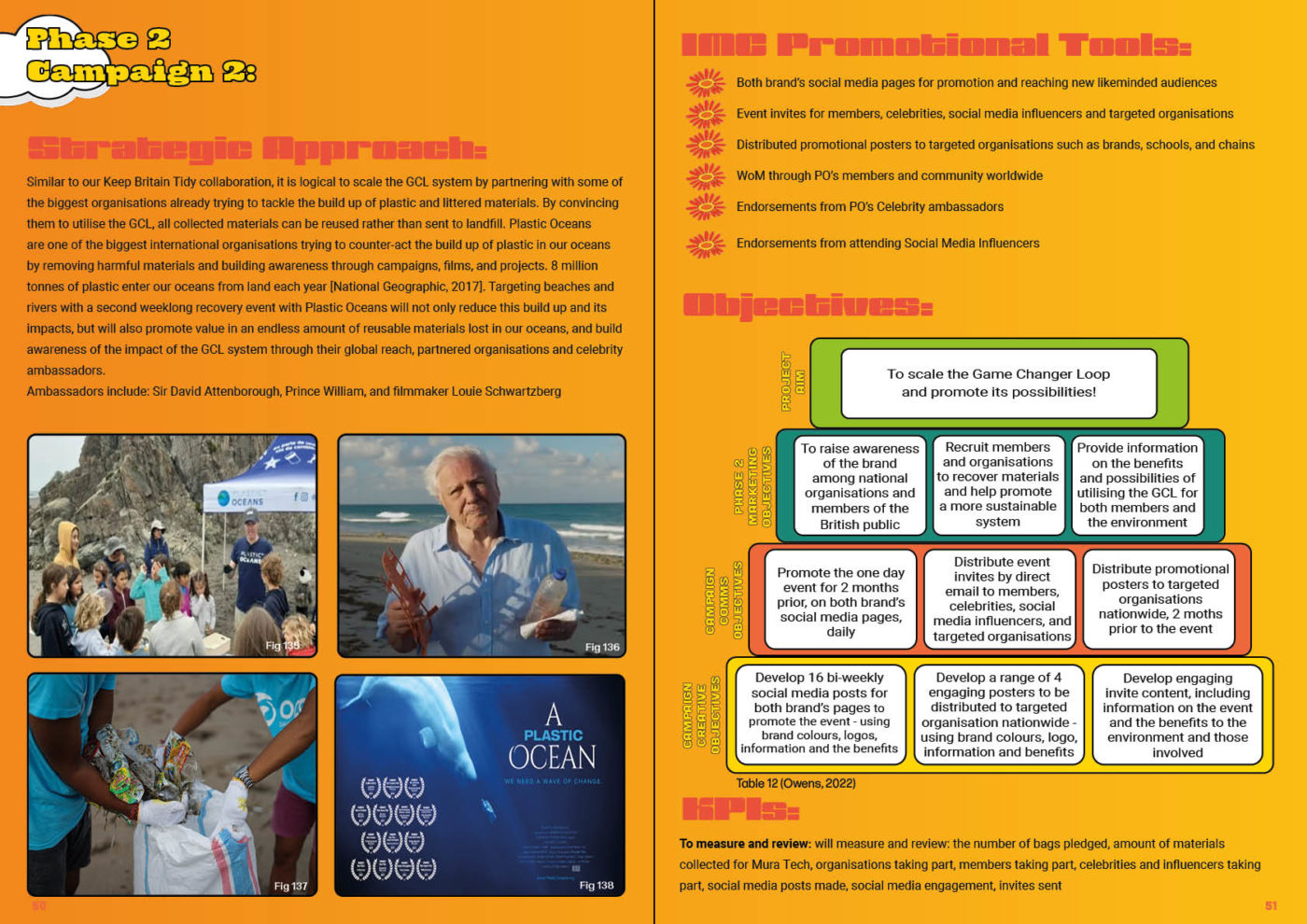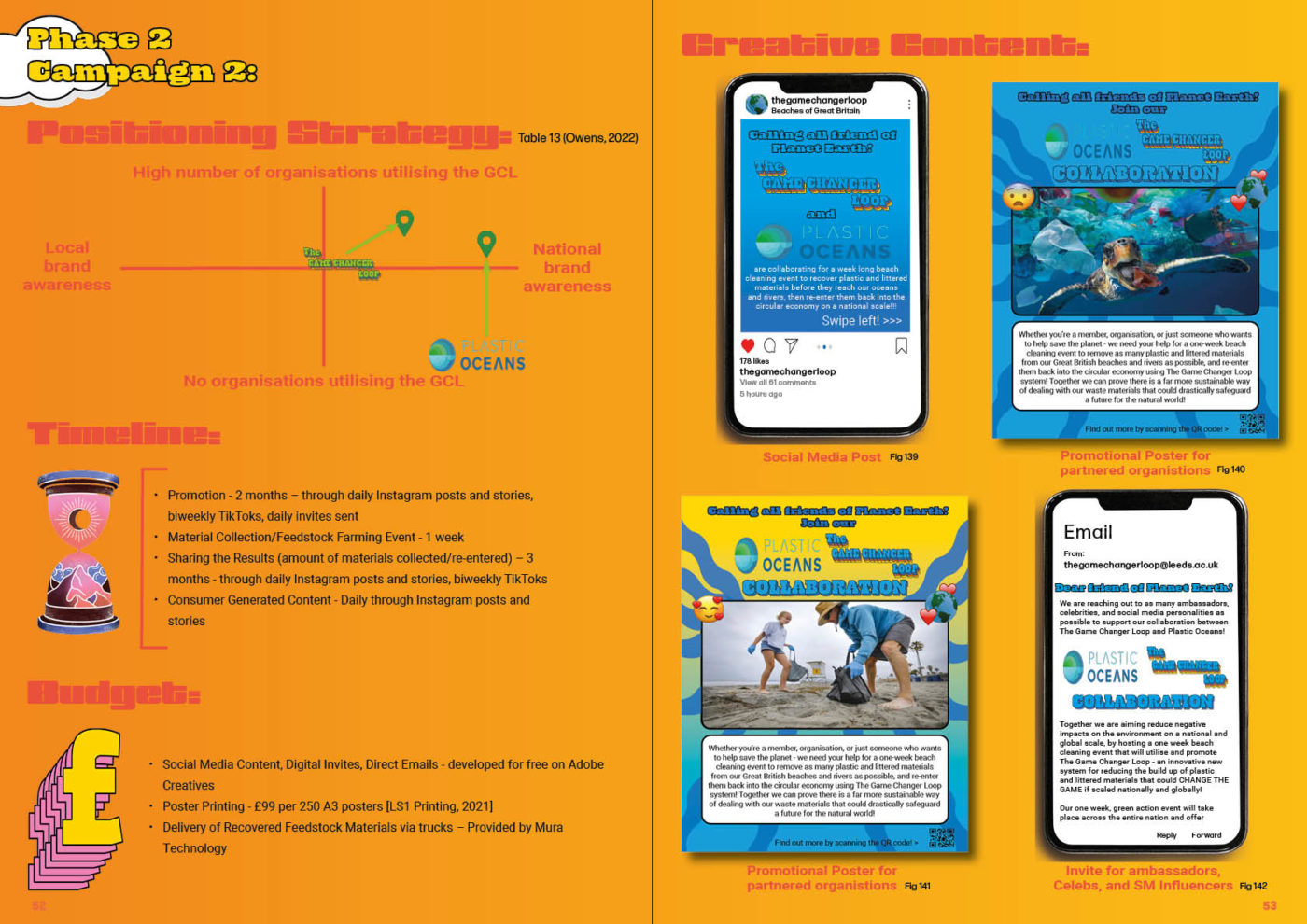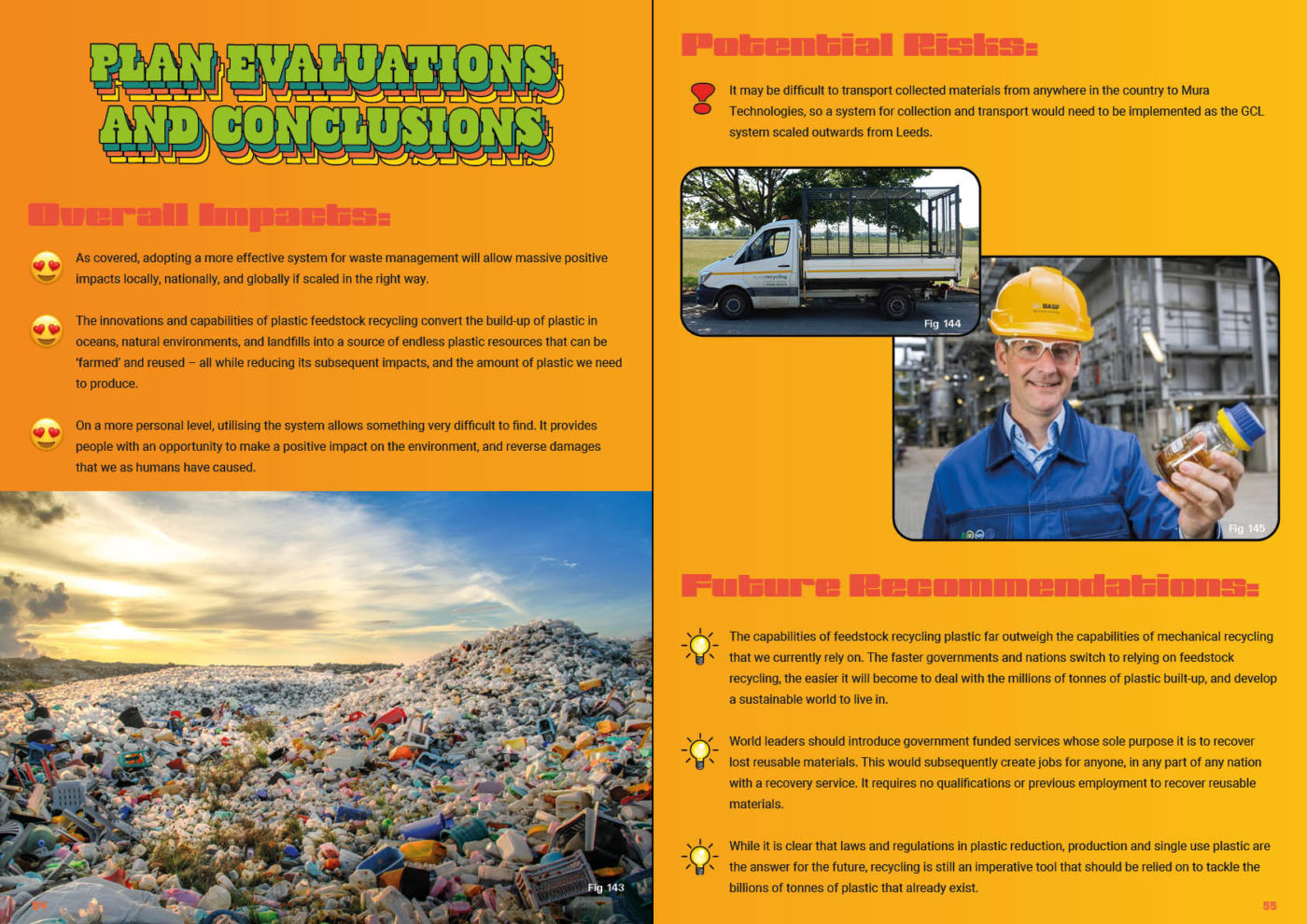2022: Fashion Marketing BA Hons
Showcase
Statement
The Game Changer Loop is an innovative system and organisation for reducing the build up of plastic and litter in our communities, landfills, and the natural environment.
The Situation
8.3 billion tonnes of plastic have been produced globally, with 6.3 billion tonnes of it becoming waste, and only 9% of all plastic ever produced having been recycled or reused. The vast majority of that of plastic, 79%, now resides in landfills or the natural environment, along with a host of other littered materials.
There is a drastic need for ways of reducing the build-up of these materials that can be implemented at any level, anywhere in the world.
So why can’t we just recycle and reuse all these built up materials?
The Mechanical Recycling systems we currently rely on cannot actually process materials for many different reasons, especially if they are weathered or contaminated by dirt. This means these materials are nothing more than litter, and are currently unusable.
The Opportunity for a New System
Feedstock Recycling is an innovative new process of recycling the unrecyclable by breaking down materials back into their raw materials known as ‘Feedstock’. This process can also be done endlessly, in contrast to the outdated Mechanical Recycling systems we currently rely on which degrade the materials over time.
This innovation grants a completely new perspective of how we view the build up of plastic. Through this process, materials are now reusable, and subsequently now have value. 79% of all plastic ever produced which currently resides in landfills, communities, and the natural environment could now be ‘farmed’ or ‘mined’, and reused, all while reducing the drastic impacts these materials cause worldwide.
This could all be achieved by adding one extra step to the Feedstock Recycling process – an effective system of recovery. And behold! The Game Changer Loop was born.
The Brand
The Game Changer Loop organisation aims to promote the benefits of scaling feedstock recycling with an effective system of recovery.
From insights gained during market research, such as an increase in eco activism and eco-anxiety in younger generations, the organisation aims to provide young people with an opportunity to take green action.
The hippie branding aims to be GROOOVY yet impactful, with all the driven KAPOW! of a young environmental activist staring planetary cataclysm in its dingy polluted face!
Communication Campaigns
To promote and scale The Game Changer Loop, four communication campaigns were developed over 2 phases.
Phase 1 aimed to raise awareness of the organisation and the benefits and possibilities of scaling the GCL.
Phase 2 aimed to scale the GCL system to the country and beyond. The plan would be to encourage other litter picking organisations to supply their collected materials to the relevant plants, and encourage as many other brands and organisations as possible to switch to feedstock recycling to guarantee their waste is returned to the circular economy.
A GCL certification badge was also developed for organisations to display, to show consumers they truly support the circular economy.
Campaign 1: “Have You Heard About The Game Changer Loop?”
Campaign 1 was a launch event to raise awareness of the community, its work, and the possibilities of scaling Feedstock Recycling with a system of recovery. The aim was to recruit a body of student activists to take part in
local litter picks to collect lost resources and show the system’s benefits on a small scale.
Campaign 2: The Litter Picking Nominations
After a Q&A focus group with university students, the main barrier for participation in green action groups and planned litter picking activities was a lack of time. Therefore, it was logical to devise a campaign that would be quick and easy for students to participant in.
Campaign 2 was a social media based campaign, ‘The Litter Picking Nominations!’ Members and students would be challenged to pick up 3 pieces of litter every day on their way to and from Uni campus, and after a week would nominate 3 of their mates to do the same.
Participants would be incentivised through prizes, branded t-shirts, and daily entries into the NPO Litter Lotto’s cash prize draws.
Campaign 3: The Keep Britain Tidy Game Changer Loop Collaboration
When aiming to scale a new system for managing waste materials, the logical direction would be to approach the biggest litter collecting organisations in the country to convince them to supply their collected materials back into the circular economy by utilising the GCL.
Phase 2, Campaign 1 was a weeklong nationwide litter picking event and collaboration with Keep Britain Tidy! It aimed to urge KBT’s partnered organisations, half a million members nationally, and members of the public to pledge as many bags of litter collected as possible to be fed back into the circular economy, and show the nation the value of the GCL system.
Campaign 4: The Plastic Oceans Game Changer Loop Collaboration
Similar to our KBT collaboration, it was logical to scale the GCL system by partnering with some of the biggest organisations already trying to tackle the build up of plastic and littered materials.
Phase 2, Campaign 2 was a weeklong nationwide beach cleaning event and collaboration with Plastic Oceans! Targeting beaches and rivers with a feedstock recovery event with Plastic Oceans would not only reduce the build up and its impacts, but would also promote value in an endless amount of reusable materials lost in our oceans, and build awareness of the impact of the GCL system through their global reach, partnered organisations and celebrity ambassadors.
What could The Game Changer Loop do for the future?
Adopting a more effective system for waste management will allow massive positive impacts locally, nationally, and globally – if scaled in the right way.
The capabilities of Feedstock Recycling plastic far outweigh the capabilities of Mechanical Recycling. The faster governments and nations switch to relying on Feedstock Recycling, the easier it will become to deal with the millions of tonnes of built-up materials, and develop a sustainable world to live in.
Developing systems of resource collection could provide jobs worldwide that require no skills or past experience.
Utilising the system also provides people with something very difficult to find – an opportunity to make an individual positive impact on the environment.


